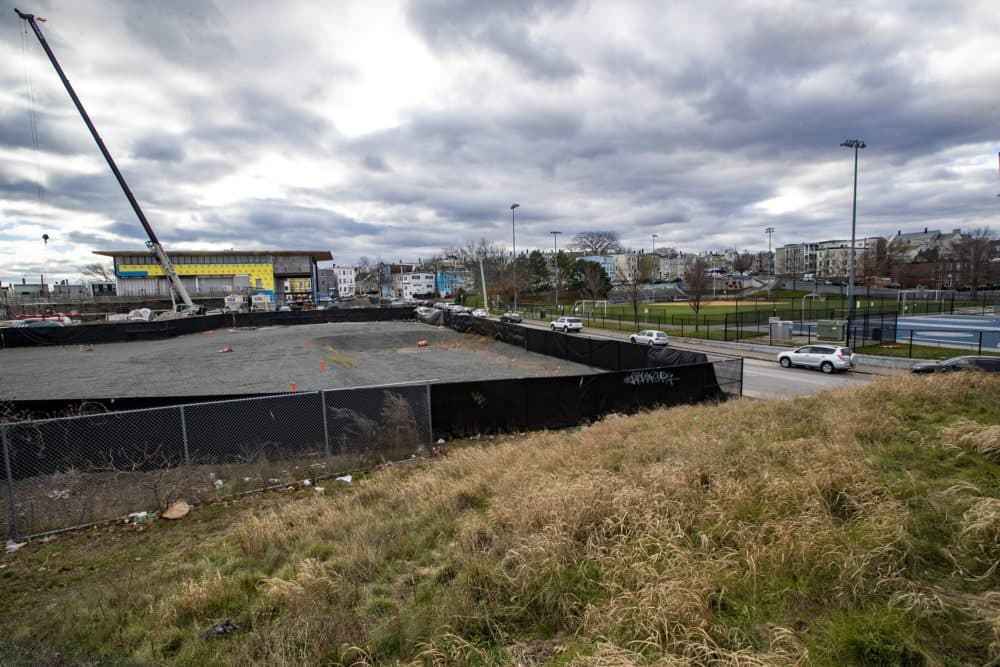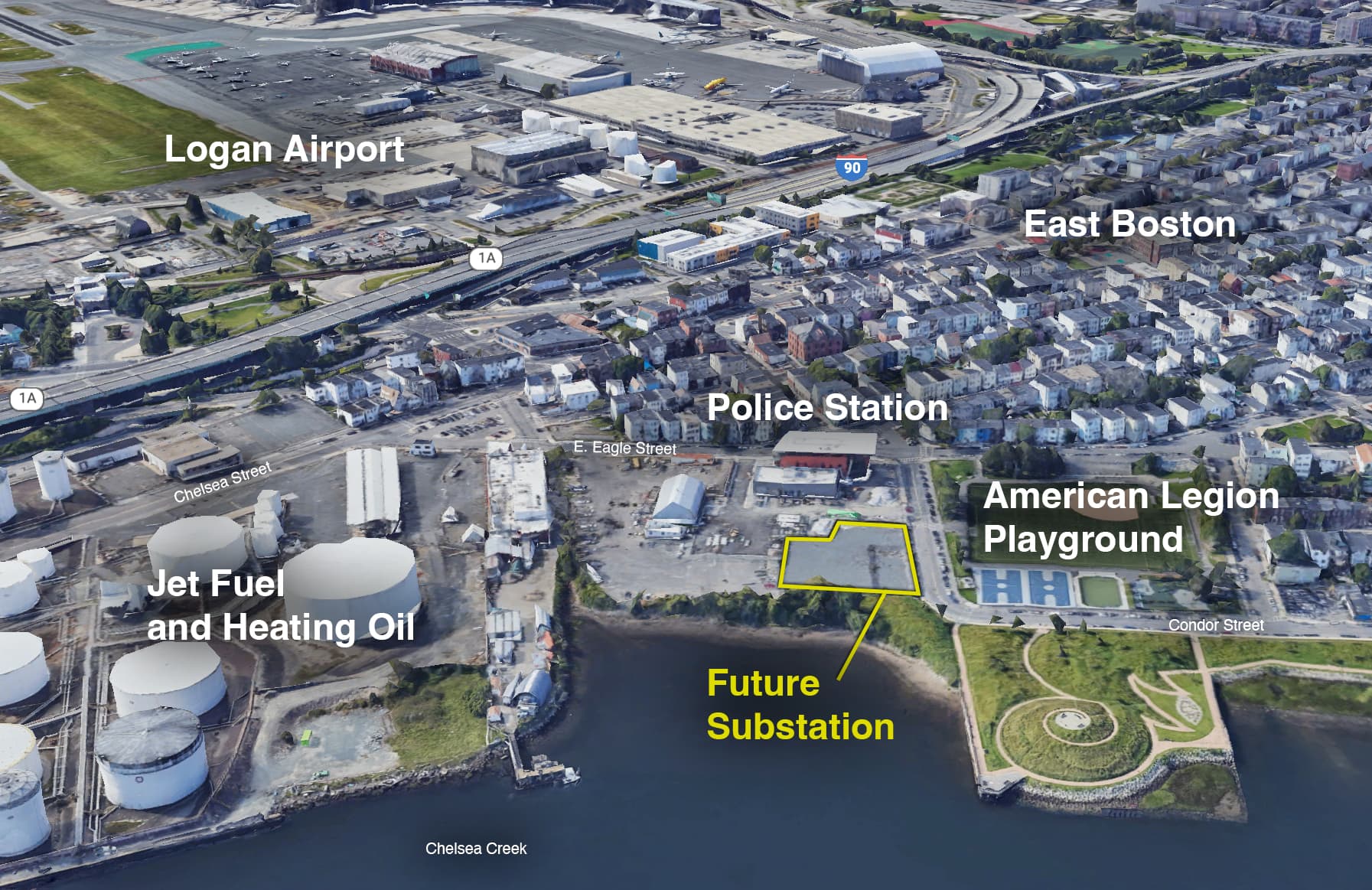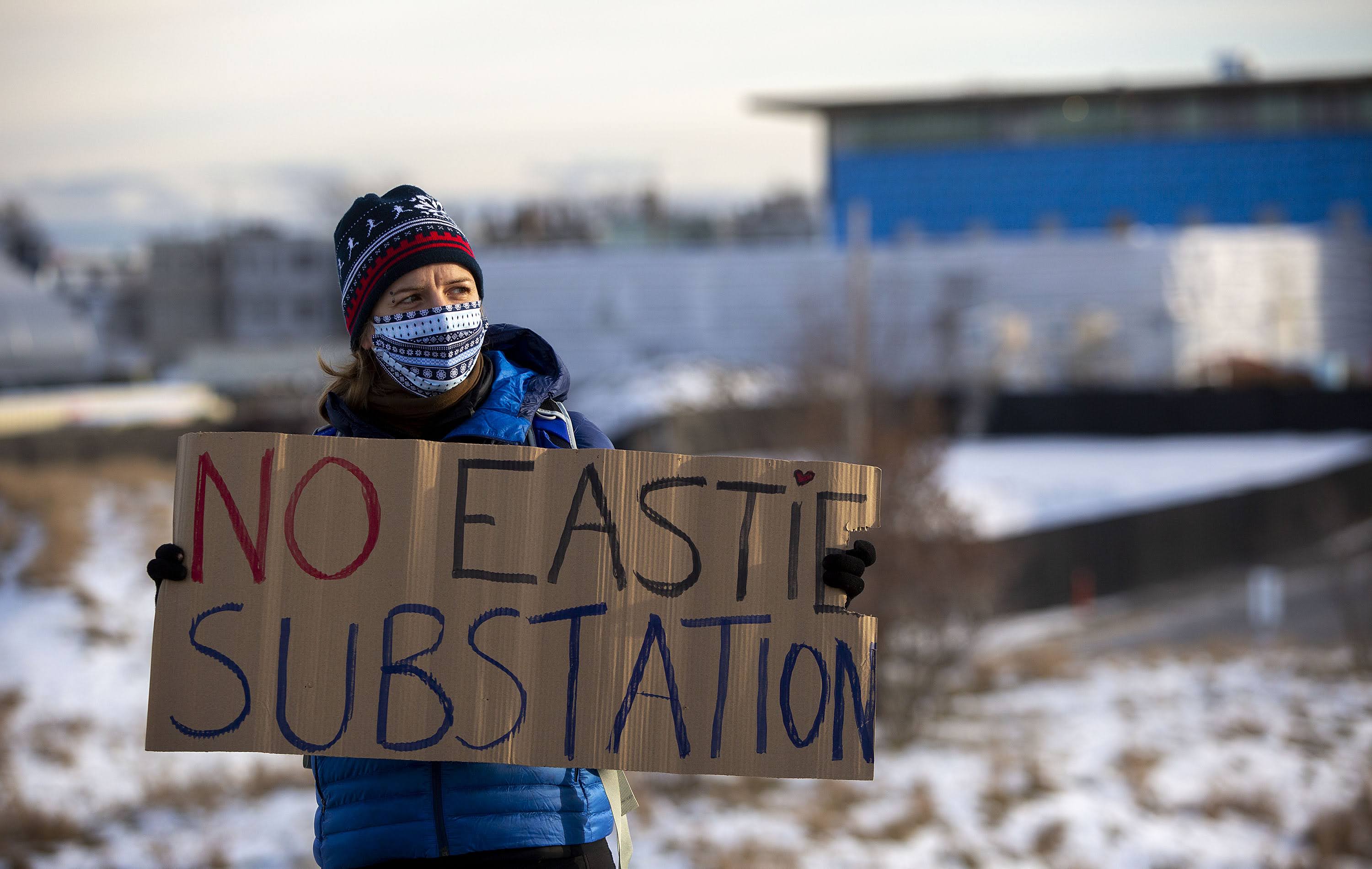Advertisement
State clears East Boston substation for construction without 14 local environmental permits

The utility Eversource can soon begin construction on a controversial electrical substation in East Boston.
Much to the outrage of opponents and many residents, the company secured its final environmental permits for the project Tuesday evening with a special waiver from a state board. The Energy Facilities Siting Board, which controls permitting for all large energy projects in Massachusetts, voted to allow Eversource to bypass the 14 remaining state and local permits it needed for the project.
The decision came at the end of a seven-hour Zoom meeting during which several public officials, local residents and environmental advocates urged board members to either deny Eversource's request or delay its decision until Governor-elect Maura Healey takes office in January and appoints new members.
“It’s important to remember that we’ve been talking about this [substation project] for almost 10 years,” state Sen. Lydia Edwards told the board at the meeting. “What’s it to you to wait another four or five months for the next administration to come in?”
Eversource first proposed building the substation in 2014 as part of a larger energy project for the East Boston, Chelsea and Everett area. Substations are a critical part of the energy system; the one proposed for East Boston will convert high-voltage electricity from a transmission line running under Chelsea Creek to a lower voltage so it can be used in peoples’ homes.
After some project changes and many years of contentious hearings, the siting board gave Eversource a green light to proceed in early 2021. With that decision in hand, Eversource set out to obtain the remaining 14 state and local environmental permits it needed. But it quickly ran into problems; some local permitting agencies had “unduly delayed and unreasonably conditioned” their approval, the company said.
In February, Eversource took advantage of a provision in state law that allows the siting board to issue a special permit that supersedes all local and state environmental permits. Earlier this month, the board issued a draft decision approving the so-called Certificate of Environmental Impact and Public Interest, but said it would hold off on a final decision until after Tuesday’s public hearing.

Many people signed up to deliver public comments, but most said their efforts felt futile because, in their view, the board rarely appeared to take residents’ concerns about public safety and environmental justice seriously.
“I’m disappointed we are still here in what feels like a sham of a process,” state Rep. Adrian Madaro, an East Boston resident, said during the meeting. “My neighborhood as a whole, we feel like our voices have been silenced, and we’re not heard.”
“No matter how much you fight, it doesn’t matter,” echoed East Boston resident Sandra Nijjar. “It doesn’t seem to register.”
Boston City Councilor Gabriela Coletta, who is also an East Boston resident, said the approval of the certificate would be “a slap in the face to everyone on this call."
Despite residents' pleas and the dissent of one board member, the siting board ultimately voted in Eversource’s favor.
Advertisement
Eversource spokesman Christopher McKinnon said the company has not yet set a date to start construction.
“This decision by the EFSB is the culmination of a robust public process that ensures we can provide safe, reliable electric service for our customers in East Boston and Chelsea," McKinnon wrote in an email. “East Boston is the city’s fastest-growing neighborhood and the only neighborhood in Boston without an existing substation. Demand for electricity in East Boston continues to rise, making it necessary to build new infrastructure that will support growth for years to come.”
It's rare for the board to grant this kind of superseding environmental certificate. The board made its decision after weighing two major factors, according to Donna Sharkey, the board's presiding officer.
First, whether “the facility is compatible with environmental protection, public health, and public safety goals and policies.” And second, “whether construction and operation of the substation conform with state and local laws consistent with providing a necessary energy supply for the commonwealth with a minimum impact on the environment at the lowest possible cost.”
Sharkey said the board felt the benefits of the project outweighed "relatively minor" disruptions due to construction. Sharkey added the board also took a fresh look at whether the project was needed for electric reliability and whether there were realistic alternate locations for the project. On these questions, the board also sided with Eversource, concluding the substation was imminently needed, and the neighborhood provided the best location.

John Walkey, director of Waterfront & Climate Justice Initiatives at GreenRoots, the Chelsea-based environmental nonprofit leading the fight against the substation, called the board's decision “disappointing” but “not surprising.”
“After 8 years of this process, it is clear that the priorities that guide the decision-making of the EFSB are incompatible with the environmental justice principles codified by the Commonwealth in the Roadmap Law,” he said in a statement, referring to the 2021 state climate law that vastly expanded environmental justice protections.
GreenRoots and other environmental advocates have repeatedly argued the substation should be subject to the stronger environmental protections codified in the 2021 law. East Boston is already an overburdened community, they argue. It’s home to Logan Airport, several major highways and large tanks of jet fuel. Putting an electrical substation in a flood-prone area near a densely populated neighborhood and across the street from a popular children’s playground just adds to the inequity.
It also “disregards East Boston residents’ voices,” said Staci Rubin, vice president of environmental justice at the Conservation Law Foundation, which is representing GreenRoots in this proceeding.
Still, despite this latest ruling, GreenRoots and CLF say the fight isn’t over. The groups plan to appeal the permit to the Supreme Judicial Court and are keeping their fingers crossed that Healey will intervene when her term as governor begins in January.
